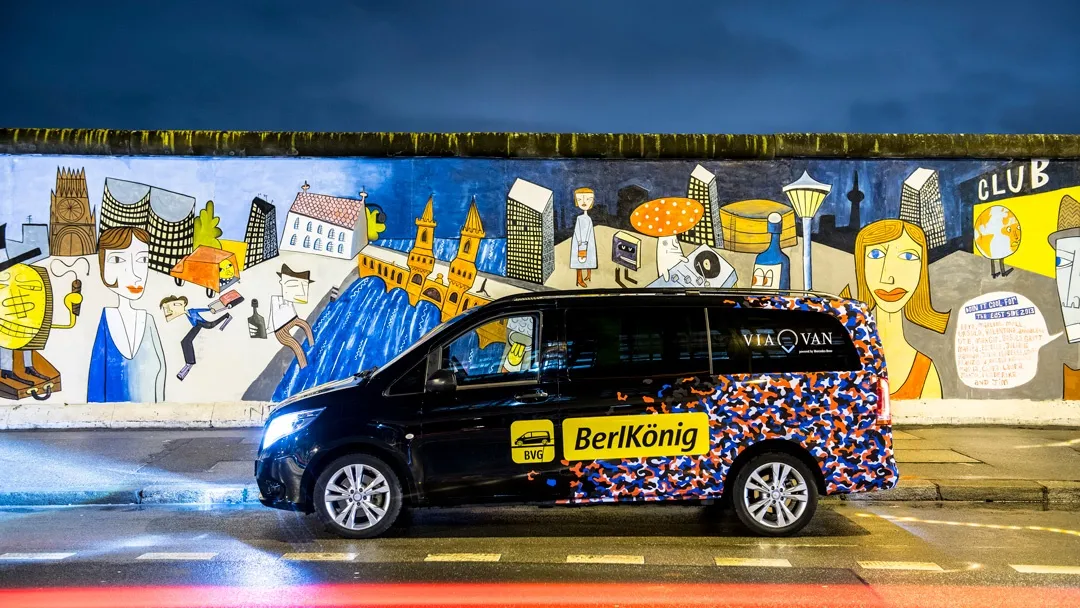
Berlin's on-demand platform BerlKönig is now only open to the city’s ‘essential healthcare workers’ until 19 April.
During the coronavirus outbreak, regular operations are suspended and the service will be provided ‘exclusively’ to medical and nursing staff during night-time hours.
To register for the service, authorised healthcare workers will need to provide documentation.
BerlKönig will operate from 9pm to 5.30am in an expanded zone which includes the S-Bahn ring and an extension to the city outskirts to include additional hospitals.
Rides are limited to three passengers per vehicle, to allow for proper social distancing, in line with public health recommendations, the companies say.
“Digitally-enabled transport services like the BerlKönig can play a key role in allowing public transport to adapt to demand amidst rapidly changing situations,” says Chris Snyder, CEO of ViaVan.
Dr. Rolf Erfurt, chief operating officer of BVG, said that the rest of the population would not be ignored. “With our large buses and trains we offer all Berliners who still need to be mobile in this difficult situation, a reliable and stable offer,” he said.
Meanwhile, in London health workers are being given a code that waives the 24-hour access fee for the city’s bike-share scheme.
This means any journey under 30 minutes on Santander Cycles, valid to 30 April, is free.
Transport for London says docking stations near hospitals “are being prioritised to ensure there is a regular supply of bikes for medical staff to use”.









